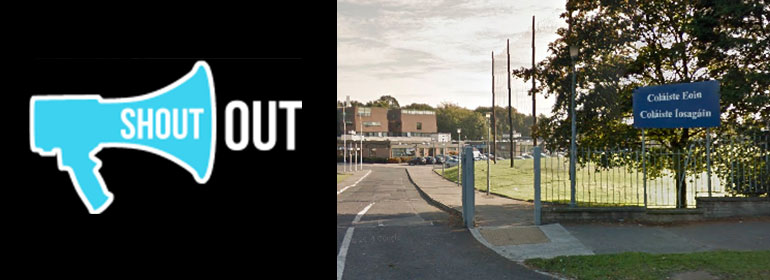January’s scandal involving the cancellation of a workshop on homophobic bullying in a Dublin school was a stark lesson for the Irish education system, says Adam Long.
The controversial decision last month of Dublin based secondary school Coláiste Eoin to cancel a pre-arranged workshop on homophobic bullying on the grounds that ‘both sides’ of the issue needed to be represented set off an understandable and well justified firestorm of criticism, with people finding the very notion that such bullying could ever be open to debate deeply offensive. Yet that was the explanation provided to the group who arrived at the school that morning to deliver their workshop.
ShoutOut, the voluntary youth organisation who deliver such talks in schools around the country, sought further clarification on the reasons behind the cancelling of the workshop. It was only when met with a refusal from the Coláiste Eoin authorities to comment any further, that they felt the need to publicly express their concerns about what had unfolded.
Under pressure from mounting criticism of their actions, including a threat by students from the adjacent girls school to organise a protest against the cancellation, and serious concerns expressed by Education Minister Jan O’Sullivan and other high profile figures, Coláiste Eoin finally reversed their ‘no further comment’ position and the school board issued a statement in which it cited objections raised by a number of parents as the reason for their decision, and how this required them to “seek the advice available from Catholic management representative bodies available to secondary schools.” It was also claimed that the talk was merely postponed as opposed to cancelled.
It is important to refer at this point to a decision taken in 2013 by then Minister For Education Ruairi Quinn to update national anti-bullying guidelines, with an explicit requirement for the first time that primary and post-primary schools proactively address homophobic and transphobic bullying in their policies. No opt-outs or exemptions were provided on ‘ethos’ or any other grounds and the tackling of such bullying is now mandatory for all schools. The work of ShoutOut can be said then to compliment school authorities on what is a clear duty in this area.
Why then was it not explained to those dissenting parents that the workshop would cover a topic that all schools are obliged to address and that when it comes to confronting homophobic bullying, there is not and cannot be an ‘opt out’ from such a mandatory requirement?
As public criticism of the Coláiste Eoin authorities continued, Principal Finín Máirtín gave an interview to RTÉ Raidió na Gaeltachta, which quite frankly left a lot to be desired. While admitting to some mistakes on the school’s part, he failed to take clear responsibility for what had happened and the deeply troubling message conveyed by the cancelling of the workshop. He expressed upset at the behaviour of ShoutOut, claiming that their decision to go public formed the basis of the controversy.
When challenged about the original claim from the school that both sides of the ‘debate’ needed to be represented, he stated that while there were not two sides to homophobic bullying, there did exist “different opinions” on what he described as “LGBT matters” and that the “Catholic ethos” of the school was a factor. Considering that the workshop to be delivered related solely to the topic of homophobic bullying and not wider “LGBT matters” currently subject to social and political debate, this was a strange and confusing assertion indeed.
Beyond the specific issues raised in this case, LGBT students continue to be short-changed in an education system where the delivery of the Department of Education mandated Relationships & Sexuality Education (RSE) programme continues to be patchy, and where LGBT issues can be deliberately ignored by invoking religious ethos.
A proposal by Britain’s opposition Labour Party to make LGBT-inclusive sex education compulsory in all publicly owned schools will hopefully be implemented should that party win power in the country’s general election in May, and it is also something worth pursuing in an Irish context.
In a country where the vast majority of our state funded schools continue to operate under the patronage of a single religious institution that has, to put it mildly, a far from exemplary record when it comes to matters pertaining both to LGBT rights and sexuality more generally, the need for more progressive educational influences is clear.
© 2015 GCN (Gay Community News). All rights reserved.
